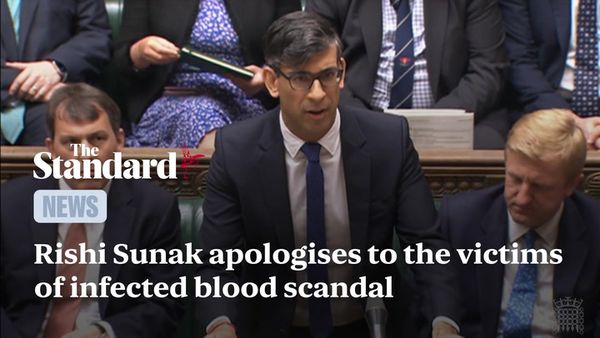
Sir Martyn Oliver, the leader of an academy trust renowned for high numbers of suspensions, has been nominated as Ofsted’s next chief inspector to oversee England’s inspectorate of schools, children’s services and prison education in the new year.
Gillian Keegan, the education secretary, formally recommended Oliver to succeed Amanda Spielman as His Majesty’s chief inspector, a decision that will be ratified by parliament after a pre-appointment hearing in autumn.
“Sir Martyn Oliver has demonstrated exemplary leadership and an unwavering commitment to driving up standards in areas of disadvantage in his time as a school and trust leader,” Keegan said.
She praised Spielman for her key reforms to Ofsted over the last seven years, adding: “I am confident the breadth of Martyn’s experience will enable him to build on this vital work as Ofsted moves into the future.”
The government also praised Oliver’s “track record of driving up standards in areas with high levels of disadvantage”, as the chief executive of Outwood Grange Academies Trust (Ogat) based in Wakefield, which administers 41 schools in the Midlands and the north of England.
Oliver, 51, said he was “deeply honoured and hugely privileged” to be nominated.
He said: “I can promise that I will work extremely hard and very closely with the whole sector so that we can together build on what has been done to date to create the best system in all areas of education, children’s services and skills for the benefit of children and young people.”
Oliver, a former teacher, took over as Ogat’s chief executive in 2016 and has overseen a doubling in size of the trust. His annual salary at Ogat is a comparatively modest £180,000 a year, in a sector where chief executives are often paid £250,000 or more.
Oliver has benefited from appointments to influential roles, including to the government’s commission on race and ethnic disparities. He is also a trustee of the Education Endowment Foundation and the Office for Students, the independent higher education regulator for England.
In common with recent chief inspectors, Oliver has little experience outside the schools sector, despite Ofsted’s legal responsibility for evaluating local authority social care provision, children’s services and residential homes for children in care.
Earlier this year Spielman apologised for Ofsted’s failure to uncover violence and abuse at three children’s homes in Doncaster, which inspectors had rated as “good” despite dozens of complaints.
Oliver’s promotion comes in spite of criticism – including from Ofsted inspectors – of his trust’s record on pupil suspensions and exclusions. A 2018 Guardian investigation found that Ogat’s schools had some of the highest suspension and exclusion rates in England. Two out of five students at Outwood academy Ormesby in Middlesbrough had been suspended at some point during the previous year.
Henri Murison, chief executive of the Northern Powerhouse Trust, has said Oliver had “serious question to answer” on why Ogat’s suspension rates were so much higher than other schools, and that Oliver was an “inappropriate” choice as Ofsted’s chief inspector.
Official figures revealed record high levels of suspensions by state schools in England in 2021-22, although permanent exclusions were down by 20% compared with pre-pandemic levels.
The Department for Education figures showed that 578,000 pupils were suspended from state schools last year, nearly 7% of the total – the highest rate since current records began in 2006-07, and well above the 5.4% recorded in 2018-19 before the pandemic.
However, the number of permanent exclusions was lower than the three years before the pandemic, at 6,500, amounting to 0.08% of pupils. In 2018-19 the rate was 0.1%.
Tom Bennett, the government’s behaviour adviser, said it was difficult to explain why suspensions were rising quickly while exclusions were falling.
“One possible reason for higher suspension rates might be that schools use them more as a way to prevent permanent exclusions – the theory being that if a student receives a suspension, then it gets through to them that their behaviour is unacceptable. In that scenario, we could interpret higher suspensions [and] lower exclusions as a success,” Bennett said.
“Another reason could be that post-pandemic behaviour has worsened because some students have partially lost the social habits of being present in an institution. Behaviour habits can be lost easily. Suspensions may be a result of that.”
The DfE’s breakdown of exclusions and suspensions by ethnicity showed that white pupils were more likely to be suspended or excluded than black or Asian pupils in 2021-22. The exclusion rate for white pupils was 0.08, compared with 0.07 for black and 0.03 for Asian pupils.
What is in the next Ofsted chief inspector’s inbox?
Sir Martyn Oliver faces a bulging in-tray of demands for Ofsted reform and political landmines to be avoided.
1 Ruth Perry
When Oliver takes over in January – assuming he is confirmed by parliament and the privy council – it will be only a few weeks after a high-profile inquest into the death of the Reading headteacher Ruth Perry, who is said to have killed herself after an Ofsted inspection downgraded her school to “inadequate”.
The coroner has already named Ofsted as an interested party in the proceedings, and the questioning of its inspectors and Ofsted’s handling is certain to make headlines, regardless of the verdict. The worst-case scenario for Ofsted would be the coroner deciding to hold an enhanced inquest into the wider circumstances of Perry’s death, or issue a “report to prevent future deaths”.

2 School inspection overhaul
Perry’s death has ignited long-simmering unhappiness over the way Ofsted conducts inspections, especially the use of one-word summary ratings such as “outstanding” or “inadequate” that brand a school and its teachers as successes or failures. The Department for Education and Ofsted have already announced a few changes, but most think more can be done. Geoff Barton, general secretary of the Association of School and College Leaders and a former headteacher, said: “There is widespread support for the scrapping of blunt single-word judgments and we hope that this will now be a priority.”
3 Outcomes or inputs?
Some critics of Ofsted say its school inspections under Amanda Spielman have veered too far towards the theoretical and away from the practicalities of schools such as exam results, behaviour and attendance. Oliver is said to support the greater use of outcomes in inspection results but the danger is that Ofsted grades then simply follow GCSE results, meaning grammar schools and schools in middle-class areas will always do better.
4 Children’s services
Ofsted’s inspections of children’s services remains a fraught and undervalued part of the organisation, lacking the public profile of school inspections but forming a systemic danger to the organisation if things go wrong, especially in cases involving vulnerable children. With a high turnover of social workers, a reliance on agency staff and heavy caseloads, many council services are overburdened, leading to cases such as that of Arthur Labinjo-Hughes, when Solihull’s children’s services were rated as “requiring improvement” by Ofsted.
5 Reputation
Ofsted has recently lacked a strong media presence to inspire public confidence in the services it inspects. Sir Michael Wilshaw, Spielman’s predecessor, was a savvy and well-recognised media figure, at ease with appearing before inquiries and select committees. Oliver has largely avoided publicity and media appearances, so it remains to be seen if he has the ability to reinvigorate Ofsted’s image.

6 Political pressures
Ofsted is an independent inspectorate, but its independence relies on being able to defend itself from politicians on the warpath. The most recent spectacle was the equalities minister, Kemi Badenoch, pushing the organisation into holding a snap inspection of a school based on a TikTok video snippet of a classroom argument and the subsequent media coverage. Ofsted’s inspection later cleared the college. Oliver may be less inclined to embarrass senior ministers, which may backfire if there is a change of government.







